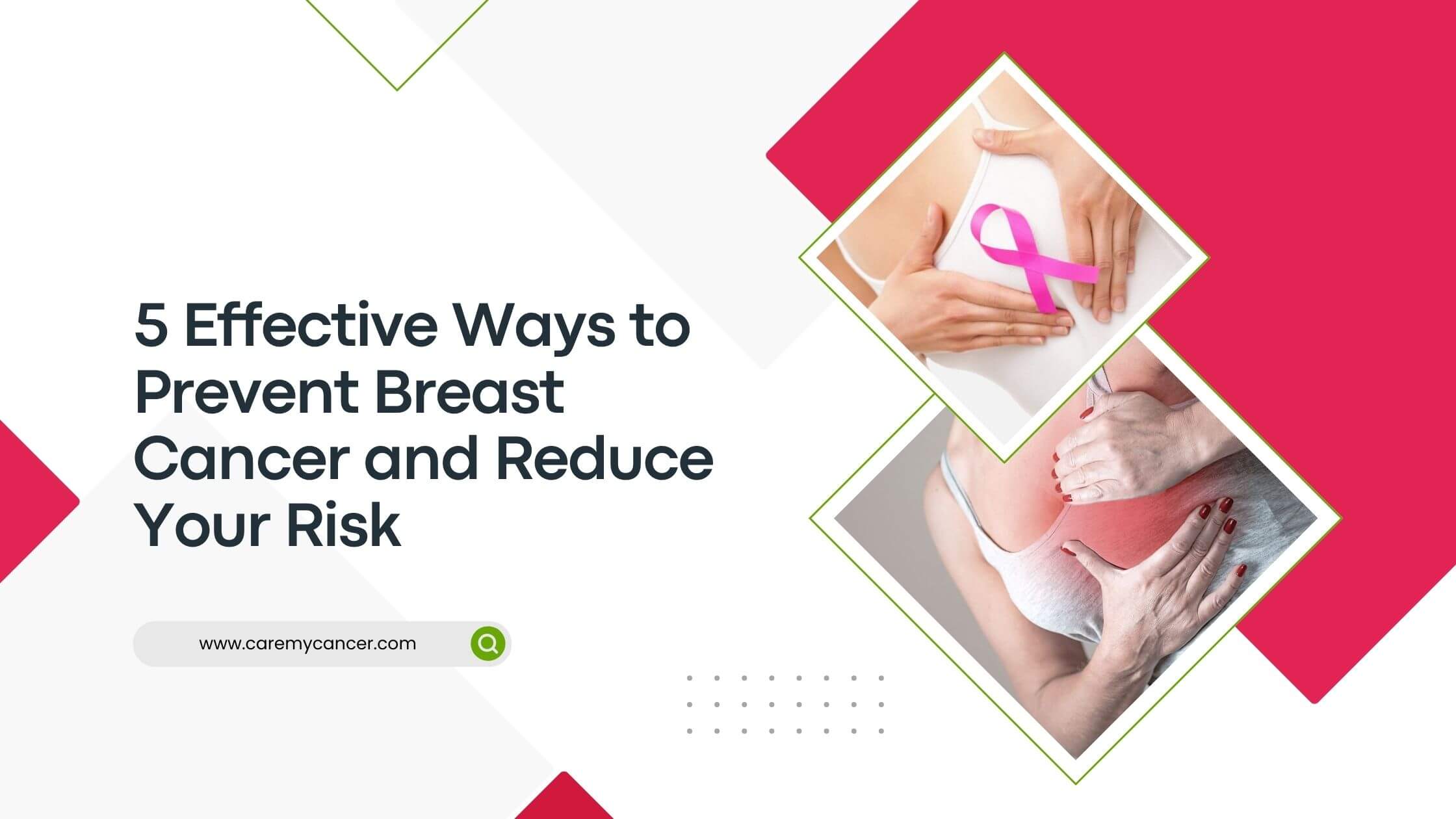Breast cancer is one of the most common cancers affecting women worldwide. Though not all cases are preventable, adopting healthy lifestyle habits can significantly reduce the risk. Preventing breast cancer involves a combination of lifestyle changes, regular screenings, and awareness of risk factors. Here, we will cover five proven ways to help lower your risk of developing breast cancer.
1. Maintain a Healthy Weight and Balanced Diet
Why It Matters:
Maintaining a healthy weight is crucial because excess body fat, especially after menopause, has been linked to an increased risk of breast cancer. This is largely due to the fact that fat tissue produces estrogen, which can fuel certain types of breast cancer.
Tips for Maintaining a Healthy Weight:
- Eat a Balanced Diet: Focus on fruits, vegetables, whole grains, and lean proteins. Foods rich in antioxidants, like berries, leafy greens, and nuts, help protect cells from damage.
- Limit Sugar and Processed Foods: Excessive sugar and highly processed foods contribute to weight gain and inflammation, which may increase cancer risk.
- Control Portion Sizes: Being mindful of portion sizes can help prevent overeating and manage weight effectively.
By incorporating a balanced diet and maintaining a healthy weight, you support overall health and decrease the likelihood of developing breast cancer.
2. Be Physically Active
Why It Matters:
Regular physical activity is one of the most effective ways to prevent breast cancer. Exercise helps to regulate hormone levels, strengthen the immune system, and maintain a healthy body weight.
How to Stay Active:
- Aim for at Least 150 Minutes of Moderate Activity Weekly: Activities like brisk walking, cycling, and swimming are excellent options.
- Incorporate Strength Training: Building muscle helps increase metabolism, which can aid in maintaining a healthy weight.
- Find Enjoyable Activities: Opt for exercises you enjoy so that it feels less like a chore and more like a routine part of your life. Dance, hiking, or group sports can be fun alternatives.
Exercise not only reduces the risk of breast cancer but also improves mental health and overall quality of life.
3. Limit Alcohol Consumption
Why It Matters:
Alcohol consumption has been directly linked to an increased risk of breast cancer. Even small amounts can increase the risk, as alcohol is known to raise estrogen levels and damage DNA cells.
Safe Drinking Guidelines:
- Limit to One Drink Per Day or Less: For women, having more than one drink per day increases breast cancer risk, so moderation is key.
- Choose Lower-Alcohol Options: If you choose to drink, select drinks with lower alcohol content, such as light beer or diluted wine.
- Opt for Non-Alcoholic Alternatives: There are many non-alcoholic drinks, such as sparkling water or herbal teas, that can satisfy the need for a drink without alcohol.
Cutting back on alcohol can help lower your risk and contribute to better overall health.
4. Avoid Smoking and Exposure to Carcinogens
Why It Matters:
Smoking is a known risk factor for multiple types of cancers, including breast cancer. Even exposure to secondhand smoke has been linked to an increased risk.
How to Avoid Smoking and Other Carcinogens:
- Quit Smoking if You Currently Smoke: Seeking support from friends, family, or a professional program can be instrumental in quitting.
- Avoid Secondhand Smoke: Stay away from environments where smoking is common or where you might inhale smoke.
- Reduce Exposure to Environmental Toxins: Common household and beauty products contain chemicals that may disrupt hormone function. Opt for products labeled “BPA-free” or “phthalate-free” whenever possible.
By quitting smoking and reducing exposure to harmful chemicals, you protect your body from unnecessary risks and help improve overall health.
5. Get Regular Screenings and Self-Exams
Why It Matters:
Regular screenings and self-exams don’t prevent breast cancer directly, but they play a crucial role in early detection. The earlier breast cancer is found, the easier it is to treat successfully.
Types of Screenings and Exams:
- Mammograms: Regular mammograms are recommended for women starting at age 40 (or younger, depending on risk factors). Mammograms can detect cancer early, even before symptoms develop.
- Self-Exams: Monthly self-exams help you become familiar with your breasts so that you can notice any unusual changes.
- Clinical Breast Exams: A healthcare professional can also conduct breast exams during annual checkups, looking for any lumps or abnormalities.
Regular screenings allow for the early detection of breast cancer, which significantly increases the chances of successful treatment.
Additional Tips for Breast Cancer Prevention
1. Breastfeed if Possible
Breastfeeding has been shown to reduce the risk of breast cancer, especially if continued for a year or more. It lowers hormone levels in the body, reducing exposure to estrogen.
2. Manage Stress Levels
Chronic stress can contribute to poor health outcomes, including an increased cancer risk. Practice stress-management techniques like meditation, yoga, and spending time with loved ones.
3. Know Your Family History
Family history plays a significant role in breast cancer risk. If close family members have had breast cancer, your own risk may be higher. Talk to your doctor about genetic counseling or testing if you have a strong family history of breast or ovarian cancer.
Conclusion
While there is no guaranteed way to prevent breast cancer, adopting these healthy lifestyle practices can reduce your risk. Maintaining a healthy weight, exercising regularly, limiting alcohol, avoiding smoking, and getting regular screenings are all proactive steps toward prevention. Making informed lifestyle choices and being vigilant about early detection can make a profound difference in lowering your breast cancer risk.
Adopt these changes today, and encourage your loved ones to join you. Every small effort counts in creating a healthier future for yourself and those around you.

